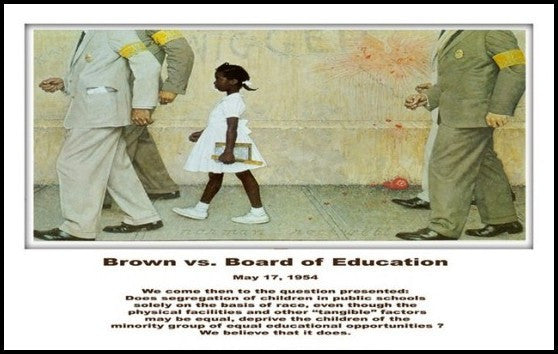

They filed the suit hoping that the school district would change its policy of racial segregation. The plaintiffs consisted of 13 parents of 20 children who attended the Topeka School District. Ruling: "Separate but equal" educational facilities, segregated on the basis of race, are inherently unequal and in violation of the Equal Protection Clause of the Fourteenth Amendment.Ī class action suit was filed against the Board of Education of the city of Topeka, Kansas in the United States District Court for the District of Kansas in 1951.Unanimous Decision: Justices Warren, Black, Reed, Frankfurter, Douglas, Jackson, Burton, Clark, and Minton.Key Questions: Does the segregation of public education based solely on race violate the Equal Protection Clause of the Fourteenth Amendment?.Segregation with the sanction of law, therefore, has a tendency to retard the educational.


Brown ruled that racial segregation itself was unconstitutional. Brown, actually a collection of five individual cases arguing against school segregation, overturned the “separate but equal” doctrine outlined in the 1896 Plessy v. Board of Education of Topeka, Kansas, was a unanimous decision. The ruling, ending the five-year case of Oliver Brown v. Supreme Court outlawed racial segregation in public schools.


 0 kommentar(er)
0 kommentar(er)
